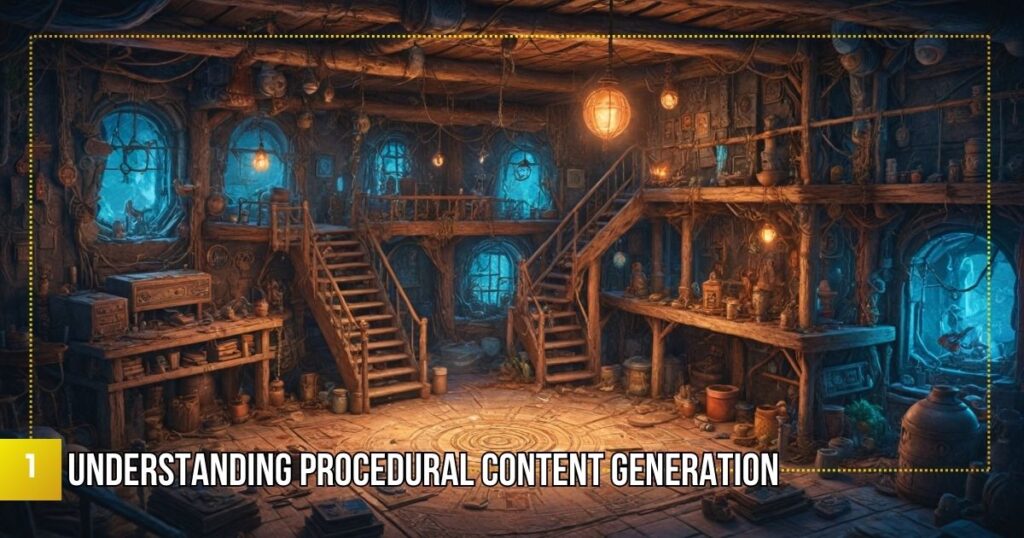
INSPIRATIONTUTS.COM
The Future of Indie Games: Leveraging AI for Procedural Content Generation
IntroductionIndie games development has always been a realm of creativity and innovation. With limited resources compared to major studios, indie developers often rely on unique approaches to create compelling experiences. One such approach gaining traction is leveraging artificial intelligence (AI) for procedural content generation. This blog explores how AI is transforming indie game development, enabling the creation of vast, dynamic worlds and diverse gameplay experiences.Understanding Procedural Content GenerationProcedural content generation (PCG) refers to the creation of game content algorithmically rather than manually. This includes generating levels, environments, characters, and even narratives. PCG allows for:Infinite Variety: Endless possibilities in-game content, ensuring each playthrough is unique.Efficiency: Reducing the time and effort required to create detailed game assets.Scalability: Enabling the development of large, expansive worlds with limited resources.AI and Procedural Content GenerationAI enhances procedural content generation by adding layers of complexity and intelligence to the algorithms. Heres how AI is revolutionizing PCG:Intelligent Level DesignAI algorithms can create intricate and balanced levels that adapt to player skills and preferences. Machine learning models analyze player behavior to generate levels that offer the right amount of challenge, making the gameplay experience more engaging and personalized.Dynamic EnvironmentsAI-driven PCG can create dynamic environments that change in real-time based on in-game events or player actions. This leads to a more immersive and responsive game world. For example, weather patterns, day-night cycles, and environmental changes can be procedurally generated to enhance realism.Character and NPC GenerationAI can create diverse and realistic non-playable characters (NPCs) with unique behaviors and interactions. The procedural generation of NPCs ensures that each encounter feels fresh, adding depth to the game world. AI-driven NPCs can adapt their behavior based on player actions, creating a more interactive and lifelike experience.Narrative GenerationAI algorithms can generate branching storylines and dynamic narratives that respond to player choices. This results in a more personalized storytelling experience, with each player experiencing a unique version of the games story.Benefits for Indie DevelopersCost-EffectivenessAI-driven procedural content generation reduces the need for extensive manual content creation, significantly lowering development costs. Indie developers can create rich, expansive worlds without a large team or budget.Creativity and InnovationAI empowers indie developers to experiment with new gameplay mechanics and narrative structures. Procedural generation can lead to unexpected and innovative game designs, setting indie games apart in a crowded market.ReplayabilityProcedural content generation ensures high replayability by providing unique experiences with each playthrough. This keeps players engaged and encourages them to explore different aspects of the game.Case Studies of AI-Driven Indie GamesNo Mans SkyDeveloped by Hello Games, No Mans Sky uses procedural generation to create an entire universe with 18 quintillion planets, each with unique ecosystems and landscapes. AI algorithms generate diverse flora and fauna, ensuring that players constantly discover new and varied worlds.Dead CellsDead Cells by Motion Twin features procedurally generated levels that offer a fresh experience with each playthrough. AI-driven level design ensures that the game remains challenging and engaging, with new layouts and enemy placements in every run.SpelunkySpelunky by Mossmouth uses procedural generation to create randomized levels, providing endless replayability. Each level is filled with unique challenges and treasures, ensuring that no two runs are the same.Challenges and LimitationsTechnical ComplexityImplementing AI-driven procedural content generation requires a deep understanding of both AI and game design. Indie developers need to invest time and resources in mastering these technologies.Quality ControlEnsuring that procedurally generated content meets quality standards can be challenging. Developers must fine-tune algorithms to avoid generating repetitive or uninteresting content.Ethical ConsiderationsAI algorithms can sometimes produce biased or inappropriate content. Developers need to implement safeguards to ensure that procedurally generated content is inclusive and respectful.Future Trends in AI and Procedural Content GenerationEnhanced AI ModelsAdvancements in AI, such as deep learning and neural networks, will lead to more sophisticated and nuanced procedural generation. This will enable the creation of even more complex and lifelike game worlds.Collaborative AI ToolsAI tools that assist developers in the creative process will become more prevalent. These tools can suggest content, automate repetitive tasks, and provide creative inspiration, enhancing the capabilities of indie developers.Cross-Platform IntegrationAI-driven procedural content generation will enable seamless integration across different gaming platforms. This will allow for a more unified and cohesive gaming experience, regardless of the device used.ConclusionThe future of indie games is bright, with AI-driven procedural content generation opening new horizons for creativity and innovation. By leveraging AI, indie developers can create vast, dynamic worlds and diverse gameplay experiences that captivate players. As technology continues to evolve, the potential for AI in game development is limitless, promising an exciting future for the indie game industry.ResourcesUnity Procedural GenerationUnreal Engine AI and Procedural GenerationGDC Vault Procedural Content GenerationAI Game DevIndie Game AcademyBy exploring these resources, indie developers can deepen their understanding of AI-driven procedural content generation and enhance their game development skills.
0 Comentários
0 Compartilhamentos
0 Anterior



